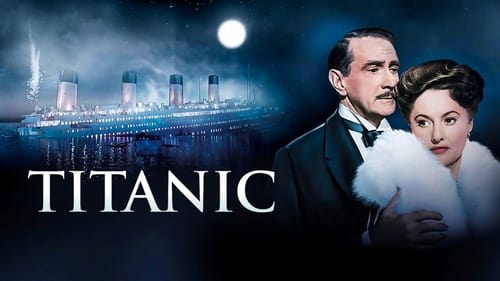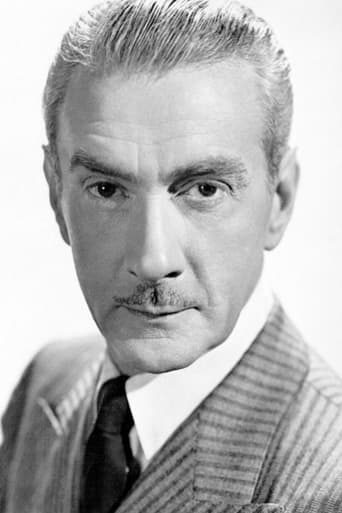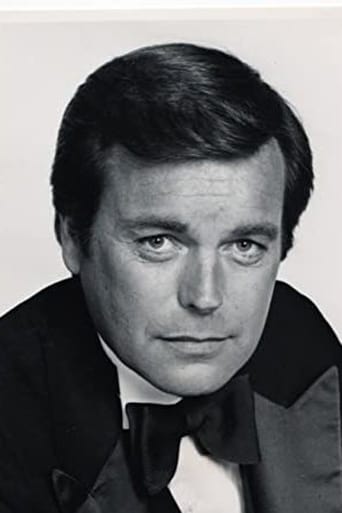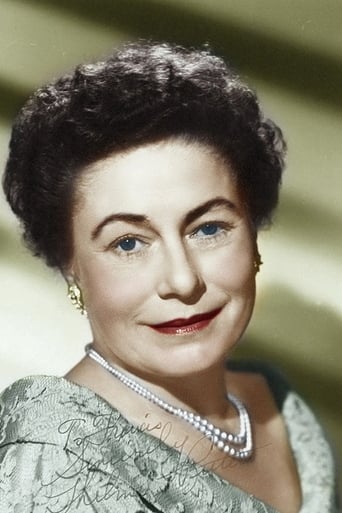Plantiana
Yawn. Poorly Filmed Snooze Fest.
Claysaba
Excellent, Without a doubt!!
Mathilde the Guild
Although I seem to have had higher expectations than I thought, the movie is super entertaining.
Zandra
The movie turns out to be a little better than the average. Starting from a romantic formula often seen in the cinema, it ends in the most predictable (and somewhat bland) way.
john_vance-20806
I watched this many times on TV as a kid, mainly interested in the exciting final scenes. When I reacquainted myself with it as an adult I realized how much I missed.The obnoxiously pretentious and pontificating character portrayed by Clifton Webb makes Billy Zane's later effort look anemic - and Zane did a great job. Stunning Barbara Stanwick plays the kind of magnetic woman that no man could watch walk away without making a last stand. Robert Wagner exhibits the same irresistible rascally charm he still shows as Dinozzo's dad on NCIS.The scene containing the interchange between the two main stars when Stanwick finally and powerfully plays her "high trump", then turns away to leave an emotionally eviscerated Webb slack-jawed and speechless is a cinematic gem. Each suffer a private Gethsemane in their own way and the sense of loss and bitterness both feel is palpably grim and painful to see. Of course the Titanic does sink and those who die and those who survive are separated with cold, irreversible finality.The special effects are not that special, even by 1950s standards, but that is not what this movie was really about in the first place. Don't expect the 1996 version, this isn't for kids, it's drama played by 2 stars at the top of their game.
SimonJack
It may seem hard to believe today, but three films were made about the Titanic within six months of its sinking on April 15, 1912. Of course, all were silent films and shorts. The first was made just 29 days after the incident. "Saved from the Titanic" was a 10-minute short that featured a young actress, Dorothy Gibson, who survived the sinking. A 30-minute German film followed on Aug. 17, and a 23-minute French film came out in October.By 1929, sound films were being made, but this 1953 film was the first full-length Hollywood feature set on and about the Titanic. Even with some musicals, other films, and very good docudramas that followed well into the 21st century, the 1953 "Titanic" remains one of the best and most enjoyed films. That's because, unlike most films that have looked for the cause and the details of the disaster, "Titanic" is more about people. It's focus is on one family, a few other individuals, and some of the crew who just happen to be on the maiden voyage of the world's largest and most luxurious ship.We see the ship as it leaves Southampton, England on April 10, 1929; then when it stops near Cherbourg, France, and then at Queenstown (present day Cobh), Ireland. At each stop it takes on passengers. When it heads toward the open sea, it has about 1,300 passengers and a crew and staff of about 920 plus. A lot of things are at play in the inability to determine precisely the number of people on board the ship. An Encyclopedia Britannica article explains that in detail.Then, the film hones in on the Sturges family, around whom the rest of the drama unfolds. Clifton Webb plays Richard Ward Sturges, Barbara Stanwyck is his wife, Julia. The Sturges children are Annette (played by Audrey Dalton) and Norman, played by an uncredited Harper Carter. Other major characters we see are Gifford Rogers, played by Robert Wagner; and Thelma Ritter as Maude Young, Richard Basehart as George Healey, and Brian Aherne as Captain E.J. Smith. A number of actors play smaller parts, mostly of prominent people or key figures. Thus, we encounter John Jacob Astor and his wife, First Officer Murdock, Chief Officer Wilde, Isador and Ida Strauss, Benjamin Guggenheim, and Second Officer Lightroller.What we are treated to in this film, is a drama of life that takes place on board a huge ocean liner; and then the excitement, fear, worry, and tense scrambling to survive a disaster at sea. All of the cast perform it superbly.I have enjoyed all of the five or six films about the Titanic that I have seen. Each has its own special appeal and value. But this film, made just 40 years after the event, has a greater feel of reality. It may be in the more natural ease of early 1950s manners, customs, style, talk and peoples' looks to mimic those of the earlier period. The people in more recent films set in a more distant time are further removed from the culture and society. So, they don't seem as natural or real, but more like people in a play or movie.The beauty of this film is that one can fit in and feel as though you are a passenger on board the Titanic with the Sturges family and others. This is a wonderful drama on the high seas, before and during a disaster.
James Hitchcock
There have been many films and TV dramas about the sinking of the RMS Titanic, a story which ever since 1912 has gripped the human imagination, far more than other, similar, maritime disasters. (I cannot, for example, think of a single film about the sinking of the RMS Lusitania in 1915, even though it caused nearly as many deaths). There are several reasons for this, primarily that the Titanic can be seen to symbolise the vanity of human wishes, the inadequacy of human technology and human powerlessness against a hostile Nature. (The Lusitania was sunk as a deliberate act of war, so its loss carries no such symbolic meaning). As Thomas Hardy wrote in "Convergence of the Twain", his poem on the disaster:-"In a solitude of the seaDeep from human vanity, And the Pride of Life that planned her, stilly couches she". This American film was one of two versions from the 1950s, the other being the British-made "A Night to Remember". There was also a notorious Nazi propaganda version (which I have never seen) but the one everyone knows today is James Cameron's from 1997. Jean Negulesco's "Titanic" from 1953, however, has one advantage over Cameron's grand epic- a better human interest story. Whereas Cameron just had that clichéd love-story of Kate and Leo, Negulesco's film has a plot which could almost be something out of Henry James. (It won the Academy Award for Writing Original Screenplay, although it was fortunate in that many of the "big films" of 1953, such as "From Here to Eternity", "Julius Caesar" and "Shane", were adaptations from other media and hence not eligible for that award). The film centres upon a wealthy estranged couple, Richard and Julia Sturges. Julia is from Mackinac, Michigan. (I understand that the name of the town is correctly pronounced "Mackinaw", but in the film it is always pronounced as it is spelled). Richard's nationality is something of an enigma. He is played by an American actor, Clifton Webb, but speaks with a British accent. There are, however, hints that he is not an Englishman but a Europeanised American, possibly an East Coast blue blood, who has fallen in love with European "high society". This has caused his estrangement from his wife, who regards this world as snobbish and artificial, and has booked a passage to America on the Titanic with her children Annette and Norman. Julia has kept her plans a secret from Richard, but he has somehow found out about them and, determined to persuade the children to return to Europe with him, buys a ticket from a Basque immigrant. (Despite his only holding a steerage ticket, nobody attempts to prevent Richard from using the first-class facilities). Julia privately despairs of being able to influence the seventeen-year-old Annette, whom she regards as being as great a snob as her father, but hopes to rescue young Norman from European decadence. On the voyage, however, Annette falls in love with Gifford Rogers, a young college student who, although wealthy, is exactly the sort of non-decadent sun-tanned, crew-cut, All-American male whom Julia would want as a son-in-law. There is also a sub-plot about George Healey, a Catholic priest defrocked for alcoholism. I found the story of the Sturges family so entertaining that I wished that these characters had been created in the context of some other film where they could have worked out their own solution to their problems rather than having a solution forced upon them by the iceberg. I never felt like that about Jack and Rose. In other respects, however, Cameron's film is superior. It is obviously superior in terms of its visual effects, but it might be unfair to make comparisons in this respect; the makers of the earlier film did not have either the modern special effects technology or the budget (even allowing for inflation) that were available to Cameron.The other respect in which I feel the newer film is better is in the way in which it portrays human reactions to the disaster. Although the older film was made four decades after the loss of the Titanic, it suggests that in some respects social attitudes had not changed very much between 1912 and 1953, certainly much less than they were to change in the next four decades between the 1950s and the 1990s. If the film-makers of the 1910s had had the benefits of more modern technology, including talking pictures, and if they had decided to make a movie about the sinking shortly after it took place, I doubt if the resulting film would have been very different to Negulesco's.The prevailing atmosphere after the iceberg strikes is one of Edwardian stiff-upper-lip heroism, with all the adult males (bar a single coward who disguises himself as a woman) unquestioningly following the "women and children first" policy, helping their wives, sweethearts and children into the few lifeboats then stoically standing on the decks to await their inevitable deaths while singing hymns. The ship's captain, Edward Smith, portrayed in the 1997 film as a weak character unable to stand up to the bullying ship-owner J. Bruce Ismay, here becomes a gallant hero whose decisive leadership and self-sacrifice saves the lives of many others. Cameron's film, by contrast, does show some acts of heroism, but also shows that not everyone was a hero and that chaos and panic were more common reactions. That film may have been unfair to certain individuals, particularly in its calumny of the ship's First Officer William Murdoch, but overall I felt that its picture of the disaster was not only more accurate but also more moving, presenting it is the tragic waste of life it really was rather than sentimentalising it as some sort of noble and heroic martyrdom. Not every remake is inferior to its original. 6/10
Supachewy
The drama Titanic is directed by Jean Negulesco and stars Clifton Webb, Barbara Stanwyck, and Audrey Dalton. The film takes place in 1912 on the famous Titanic.We all know the story of the great ship the Titanic and how it was the biggest ship ever built and then of course it sadly sank to the bottom of the ocean. But we do not all know the stories of the passengers of the Titanic and what it was like to be there as the Titanic was making it's voyage to the endless depths of the massive ocean. There wasn't enough lifeboats for everyone, only enough for the women and children. This film centers around a family on the ship, the Sturges family, and the battle in the family between the mother, Julia (Stanwyck), and the father, Richard (Webb). The family is extremely well to do and Richard wants their children to live a life like royalty while Julia wants them to be kind, humble people. Well they do not know yet that those problems will sink to the bottom of the list after they spend a few days on their trip to America.The screenplay for this film was decent but it would have been much better with more characterization. By the time the film ended I really did not know who the characters were at all, and that could have been improved if the film was lengthened in order for more dialogue and plot could happen. I do like it when films have a small plot within a much larger plot, I always find that interesting. Other films that do the same type of thing is In Old Chicago with the great Chicago fire and Apocalypto with the Europeans discovering the Americas. The main flaw with the screenplay was the fact that all the characters weren't well developed and also the ending should have had much more drama to it.The direction of this film was poor and this film could have been much better if it wasn't so. This is a majorly dramatic event and yet the film never makes it feel like it is. Negulesco never does any camera movements to make me feel like a ship in sinking and many people will die. She films it the same exact way she films the beginning of the film which is much more lighthearted. It could have been monumentally better but unfortunately not.Even though Negulesco wasn't the greatest behind the camera at least she was able to get decent performances from the actors in their single dimensional roles. Clifton Webb played the part of a gentleman fine and he really did not need to do much more than that because even as the boat was sinking he was still a gentleman. Barbara Stanwyck is one of the great actresses but this film is not the reason why even though she also did a good job, just nothing extraordinary due to the limitation of her character by the writing. She did everything in her role very well though. The same is to be said about Audrey Dalton and all the other actors in this film, most of it centered on Webb and Stanwyck's characters though.Now I would like to compare this film to James Cameron's Titanic which is far superior. The reason why the more recent Titanic is so much better is because it is a three hour film instead of only an hour and a half. For the first two hours we learn about Jack and Rose and grow to know them while we are not able to do it in this film. Then for the final hour is all the drama of the ship sinking, instead of a mere twenty minutes. I felt for Jack and Rose while I did not really at all care for anyone in the family in this film. Sometimes it is better for a film to be longer so the audience can grow into it.Overall I give this film a 6/10 because even though I've said mainly negative things about the film it isn't bad. I would recommend James Cameron's Titanic to you much sooner than this though. It is very interesting to see an older film do something of such large proportions though and I would recommend it to anyone who likes classic films and also drama about true events.






